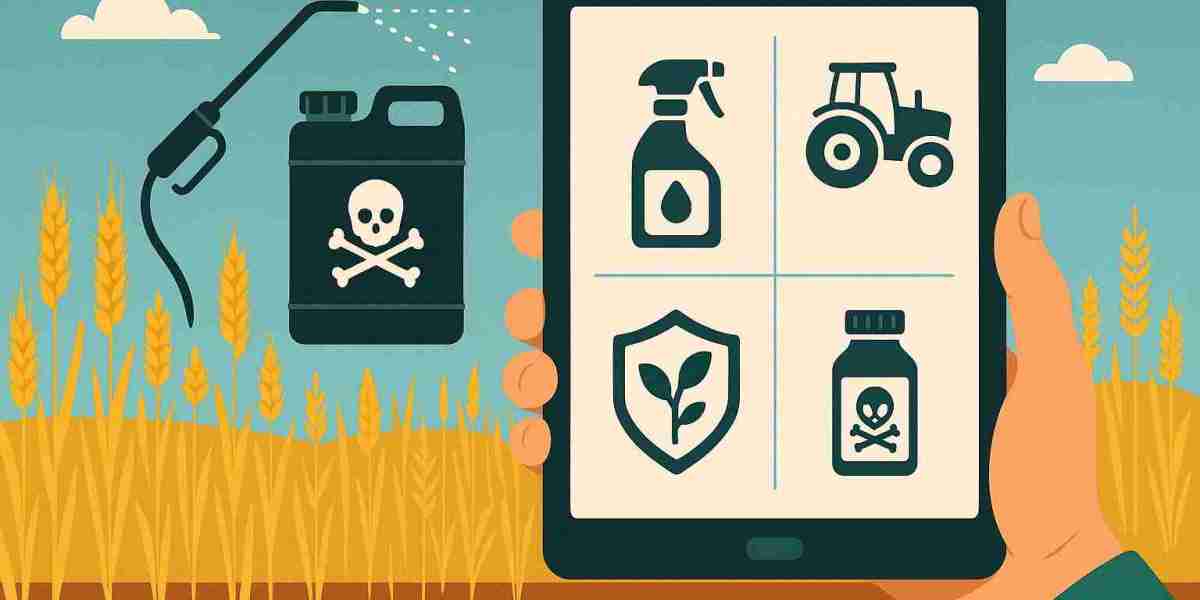Agriculture is the backbone of India’s economy, with over 60% of the population depending on farming for their livelihood. The agricultural sector in India faces numerous challenges, from unpredictable weather patterns to the constant battle against pests and diseases. Farmers have turned to agrochemicals like pesticides, fungicides, and bactericides to address these issues. However, the use of these chemicals has sparked a debate about their safety and impact on human health, the environment, and the economy.
The Current State of Agro-Chemical Regulations in India
Given the size and diversity of India's agricultural terrain, various agrochemicals are needed to fight weeds, diseases, and pests. However, India's current agrochemical regulatory framework is frequently criticised for being antiquated, erratic, and ineffective.
In India, the Ministry of Agriculture and Farmers Welfare's Central Insecticides Board and Registration Committee (CIBRC) regulates and authorizes agrochemical goods. The regulatory system needs to be completely redesigned to meet the changing needs of the farming community, even if this body ensures that products are assessed for efficacy.
Challenges with Current Regulations
Delayed approvals: The approval process for new agrochemicals often takes years, which delays the availability of newer, safer products for farmers.
Lack of uniform standards: Different states have different regulations regarding the sale and use of agrochemicals, leading to confusion and inconsistency.
Limited data on long-term effects: Many agrochemicals are approved with limited research on their long-term impact on human health, the environment, and biodiversity.
Overuse and misuse: Due to inadequate regulations and monitoring, chemicals are often overused and misused, which can lead to resistance and environmental degradation.
These challenges highlight the urgent need for more effective, transparent, and scientifically backed regulations to ensure that agrochemicals are used safely and responsibly.
The Need for Smarter Regulations
Smarter agrochemical regulations are essential for the following reasons:
1. Protecting Human Health and the Environment
An overreliance on agrochemicals may harm the environment and human health. Pesticide residues in the food chain may cause health issues for farmers and consumers. Careless use of these compounds can also result in biodiversity loss, water pollution, and soil degradation.
Thanks to a stronger regulatory framework, only safe and efficient chemicals can be authorised for use in agriculture, reducing their adverse effects on the environment and human health.
2. Ensuring the Sustainability of Farming Practices
Long-term farm output is negatively impacted by excessive chemical use, and sustainable farming is the way of the future. The application of biological control techniques, organic farming methods, and integrated pest management (IPM) strategies can all be promoted by more sensible legislation. India can lessen its reliance on chemical inputs, encourage biodiversity, and guarantee food security for future generations by offering incentives for sustainable farming practices.
3. Addressing Resistance to Agro-Chemicals
One of the major concerns in agriculture is the development of resistance to pesticides, herbicides, and bactericides. Farmers need to use more potent, more toxic chemicals as pests and diseases develop resistance, creating a vicious cycle that harms the environment and public health. Smarter regulations can help monitor pesticide resistance and encourage the development of new, more targeted products that reduce resistance.
4. Encouraging Innovation and Research
A regulatory environment that promotes innovation is essential for agricultural technology to flourish. Regulations supporting the research and licensing of new agrochemicals that are exceptionally efficient and environmentally benign are needed in India. Through expedited approval procedures and incentives for research and development, India can maintain its position as a leader in agricultural innovation.
How Smarter Agrochemical Regulations Can Help
To make agrochemical regulations smarter, India needs to implement several key changes:
1. Streamlining the Approval Process
The current procedure for approving new agrochemicals is laborious, inefficient, and frequently outdated. Implementing a simpler and more effective procedure can greatly shorten new product approval times. Farmers who have timely access to the newest and most effective chemicals can better protect their crops from pests and illnesses.
2. Standardizing Regulations Across States
State-by-state variations in regulations frequently confuse farmers, and systemic inefficiencies exist. Thanks to a standardised national framework for agrochemical control, all farmers will have access to the same quality of products regardless of their location. Additionally, it will lessen market fragmentation by making it more straightforward for businesses to sell their goods nationwide.
3. Promoting the Use of Safer, More Sustainable Products
Smarter regulations should prioritise the approval of safer and more sustainable agrochemicals. This includes promoting biopesticides, eco-friendly fertilizers, and other environmentally safe products. Additionally, encouraging the use of precision farming technologies, which apply chemicals in a targeted manner, can reduce overall chemical usage.
4. Monitoring and Enforcement
Increasingly enforcing existing regulations is crucial to ensure compliance and prevent misuse. This includes monitoring the sale and application of agrochemicals, conducting regular inspections, and penalising those who violate regulations. Monitoring systems that track pesticide residue levels in crops can also help ensure food safety.
Farmers should be provided with adequate training and resources to use chemicals properly. Better labelling and clear instructions can also help reduce misuse.
5. Incorporating Scientific Research
The approval of agrochemicals should be based on robust scientific research and data. This includes considering the long-term effects of chemicals on health, the environment, and biodiversity. Regulatory bodies should work closely with research institutions, universities, and international organisations to ensure the latest scientific knowledge is incorporated into the approval process.
The Role of Technology in Agro-Chemical Regulations
Technological developments can greatly enhance agrochemical laws. From drone-based monitoring to AI-driven data analysis, technology can offer important insights into how pesticides are used in agriculture. For instance, more efficient pesticide application through precision agriculture methods can minimise waste and its negative environmental effects.
Furthermore, farmers may obtain real-time agrochemical information via digital platforms such as the AgriBegri app, which aids in their decision-making. Farmers may easily purchase bactericides and other supplies using these platforms, guaranteeing they will have access to high-quality goods at affordable costs.
“Technology is revolutionizing agriculture by providing farmers with the tools and information they need to make better, more informed decisions.”
External Insights
Over the years, India's agrochemical regulatory system has come under fire for being either overly lax or inefficient at resolving the issues that farmers face. Research from the Indian Council of Agricultural Research (ICAR) claims that India's overuse of pesticides causes environmental harm and health risks. The paper highlights that stronger and scientifically supported regulatory regulations are required to address these concerns effectively.
The significance of striking a balance between the use of chemicals and sustainable farming methods is emphasised in another report published by the Food and Agriculture Organisation (FAO). The FAO states that nations like India should encourage organic farming practices and integrated pest management to lessen reliance on chemicals and save the environment.
FAQs
1. Why is it essential to regulate agrochemicals in India?
Regulating agrochemicals ensures their safe and effective use, protecting human health, the environment, and farm productivity. It also helps reduce misuse, encourages sustainable farming practices, and supports the development of safer chemicals.
2. How can smarter regulations benefit Indian farmers?
Smarter regulations can provide farmers access to safer, more effective products, streamline approval processes, and promote sustainable farming practices. This will help increase productivity and reduce the negative impact of agrochemicals on the environment.
3. What role does technology play in agrochemical regulation?
Technology can help monitor chemical applications, track pesticide residue levels, and provide farmers with real-time information on safe chemical usage. It also supports precision agriculture, which can reduce the overall use of chemicals.
4. How can India promote the use of sustainable agrochemicals?
By encouraging the development of eco-friendly products, providing incentives for research and innovation, and promoting precision farming techniques, India can reduce its dependence on harmful chemicals and ensure the sustainability of its agricultural practices.
In summary, India’s agrochemical regulations need a comprehensive overhaul to ensure they are effective, sustainable, and aligned with the country’s agricultural goals. By adopting smarter regulations, India can safeguard its farmers and the environment while continuing to meet the growing demand for food.








